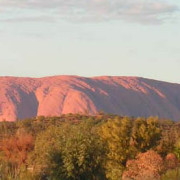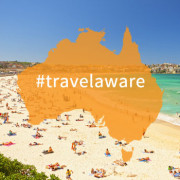In just the last 5 years we’ve seen an explosion in the amount of advice and information available for British travellers heading to Australia (and elsewhere). From travel sites like this one to the FCO’s Know Before You Go (now Travel Aware) campaign and the growth of rating and review sites, there’s more to help you plan your trip to Australia now than there’s ever been. So how come we appear to be getting worse at it?
Every year, about 40% of Brits holiday somewhere overseas. Around 620,000 of those travellers head to Australia. But if the latest Travel Habits Report by the Foreign and Commonwealth Office is anything to go by, planning and preparation is a long way down the to-do list.
Before we get to the stats themselves, a few pointers. These figures don’t relate purely to Australia but to any British national travelling anywhere overseas. And the sample size was over 3,000 – significant by any standards. We’ve looked at travel insurance in a recent post (16% of us still think it’s unnecessary, apparently) so we’ll skip over that and begin with…
Travellers who researched their destination
| 2010 (%) | 2011 (%) Jun | 2011 (%) Nov | 2012(%) | 2013(%) | 2014(%) |
| 38 | 36 | 34 | 34 | 38 | 35 |
We’re not sure which is more of an eye-opener: that two thirds of us don’t do some digging into the places we’re travelling to, or that already low numbers are on the slide.
Travellers who informed family/friends of itinerary
| 2010 (%) | 2011 (%) Jun | 2011 (%) Nov | 2012(%) | 2013(%) | 2014(%) |
| 56 | 54 | 46 | 53 | 57 | 49 |
Not everyone is heading off for three weeks in the outback. It is, perhaps, unsurprising that a large proportion of us don’t feel the need to inform our loved ones if we’re disappearing for a few days in Tenerife – even if we know we really should. But what’s really surprising here is the drop since 2010.
Tip: Wherever you’re going, tell someone about it and leave emergency contact details. That’s doubly important when you’re journeying to the more inhospitable parts of Australia.
Travellers who had important numbers to hand in case of emergency
| 2010 (%) | 2011 (%) Jun | 2011 (%) Nov | 2012(%) | 2013(%) | 2014(%) |
| 38 | 32 | 25 | 29 | 35 | 32 |
We’d best be cautious about reading too much into these figures but we’d bet that the low number is a result of the ‘if I need it I’ll find it online’ attitude most of us have at home. Except, of course, when you’re in Australia you may not have internet access where you are.
Tip: Store essential numbers on paper as well as digitally.
Travellers who made a note of their passport number
|
2010 (%) |
2011 (%) Jun | 2011 (%) Nov | 2012(%) | 2013(%) | 2014(%) |
| 25 | 22 | 16 | 21 | 21 |
24 |
A recently improving picture doesn’t hide the fact that three quarters of us wouldn’t know our passport number if we lost that little red book.
Tip: Take a photocopy of your passport and store it separately from the original.
Travellers who looked for local laws/customs
|
2010 (%) |
2011 (%) Jun | 2011 (%) Nov | 2012(%) | 2013(%) | 2014(%) |
| 25 | 22 | 16 | 21 | 21 |
24 |
You can’t travel too far in Australia without reaching places sacred to the country’s Aboriginal natives. For some (particularly in the Northern Territory) you need permits to enter, and all should be treated with respect.
Then there are Australia’s modern laws, some of which vary from state to state.
Tip: Use some of your travel time to check local Aboriginal custom, and the laws of the state you’re visiting.
What do you think? Give us your tips and share your Australian travel experiences here.
Find out more about Know Before You Go (now Travel Aware)
Planning Your Australian Holiday / Trip




